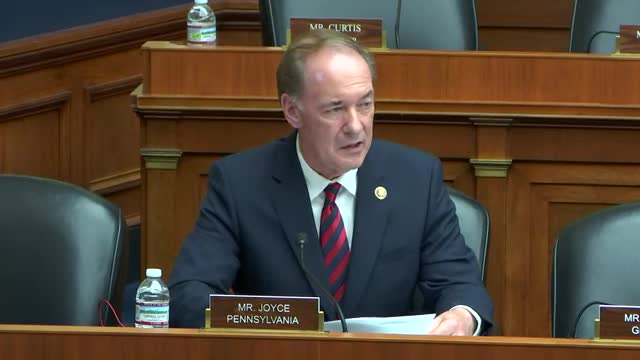FERC faces urgent challenges in securing America's power grid
July 24, 2024 | Energy and Commerce: House Committee, Standing Committees - House & Senate, Congressional Hearings Compilation

This article was created by AI summarizing key points discussed. AI makes mistakes, so for full details and context, please refer to the video of the full meeting. Please report any errors so we can fix them. Report an error »

During a recent government meeting, concerns were raised regarding the impact of regulatory actions on the energy market and the reliability of the power grid. A representative expressed apprehension that current policies could hinder investments in grid improvements, particularly as data centers and artificial intelligence technologies expand, increasing energy demand significantly.
The discussion highlighted the challenges posed by the Biden administration's environmental policies, specifically the closure of coal plants and restrictions on new natural gas facilities. These actions, according to the representative, threaten the stability of the power grid, which is already facing a projected shortfall in generation capacity by the end of the decade, as warned by PJM, the grid operator for Pennsylvania. PJM's concerns stem from the retirement of reliable fossil fuel plants, which they classify as policy-driven.
The Federal Energy Regulatory Commission (FERC) was called upon to address these issues, with questions raised about their current authority to manage resource adequacy and what additional powers might be necessary from Congress. FERC officials acknowledged the critical role of fossil fuels in maintaining grid reliability and indicated that they are actively monitoring the situation, although they lack the authority to mandate the construction of new generating units.
The meeting also touched on the need for updated planning processes and infrastructure to address the climate crisis while ensuring a transition to cleaner energy sources. The bipartisan infrastructure law and the Inflation Reduction Act were noted as significant investments aimed at modernizing the power system and promoting environmental justice.
Concerns were voiced about FERC's recent approval of a liquefied natural gas project despite dissenting opinions regarding its environmental impact, particularly on vulnerable communities. The discussion underscored the importance of ensuring that FERC's decisions align with legal and environmental standards, particularly in light of the ongoing climate challenges facing the nation.
As the meeting concluded, the urgency of addressing the anticipated energy shortfall and the need for a balanced approach to energy policy remained clear, with stakeholders emphasizing the importance of reliable and sustainable energy solutions for the future.
The discussion highlighted the challenges posed by the Biden administration's environmental policies, specifically the closure of coal plants and restrictions on new natural gas facilities. These actions, according to the representative, threaten the stability of the power grid, which is already facing a projected shortfall in generation capacity by the end of the decade, as warned by PJM, the grid operator for Pennsylvania. PJM's concerns stem from the retirement of reliable fossil fuel plants, which they classify as policy-driven.
The Federal Energy Regulatory Commission (FERC) was called upon to address these issues, with questions raised about their current authority to manage resource adequacy and what additional powers might be necessary from Congress. FERC officials acknowledged the critical role of fossil fuels in maintaining grid reliability and indicated that they are actively monitoring the situation, although they lack the authority to mandate the construction of new generating units.
The meeting also touched on the need for updated planning processes and infrastructure to address the climate crisis while ensuring a transition to cleaner energy sources. The bipartisan infrastructure law and the Inflation Reduction Act were noted as significant investments aimed at modernizing the power system and promoting environmental justice.
Concerns were voiced about FERC's recent approval of a liquefied natural gas project despite dissenting opinions regarding its environmental impact, particularly on vulnerable communities. The discussion underscored the importance of ensuring that FERC's decisions align with legal and environmental standards, particularly in light of the ongoing climate challenges facing the nation.
As the meeting concluded, the urgency of addressing the anticipated energy shortfall and the need for a balanced approach to energy policy remained clear, with stakeholders emphasizing the importance of reliable and sustainable energy solutions for the future.
View full meeting
This article is based on a recent meeting—watch the full video and explore the complete transcript for deeper insights into the discussion.
View full meeting